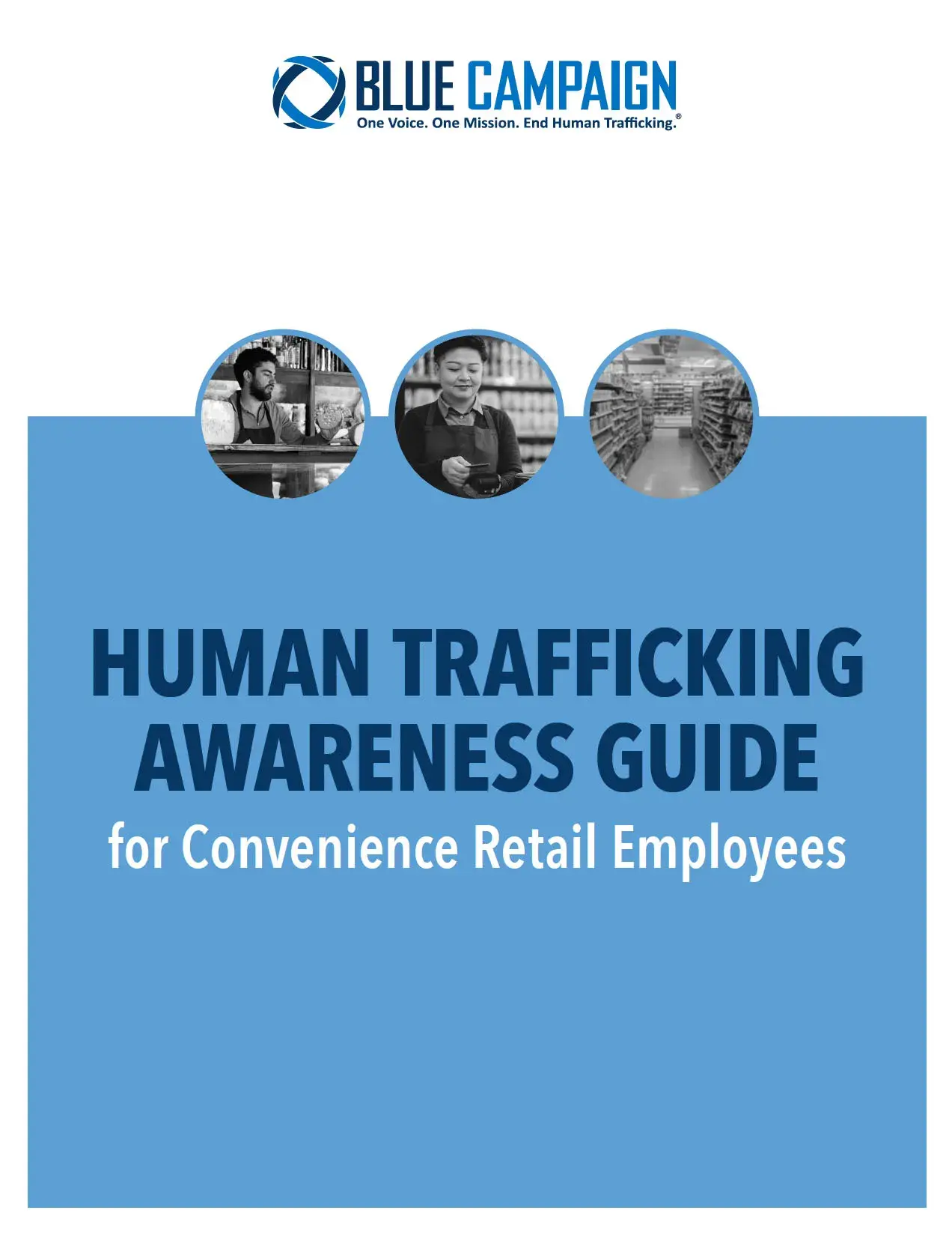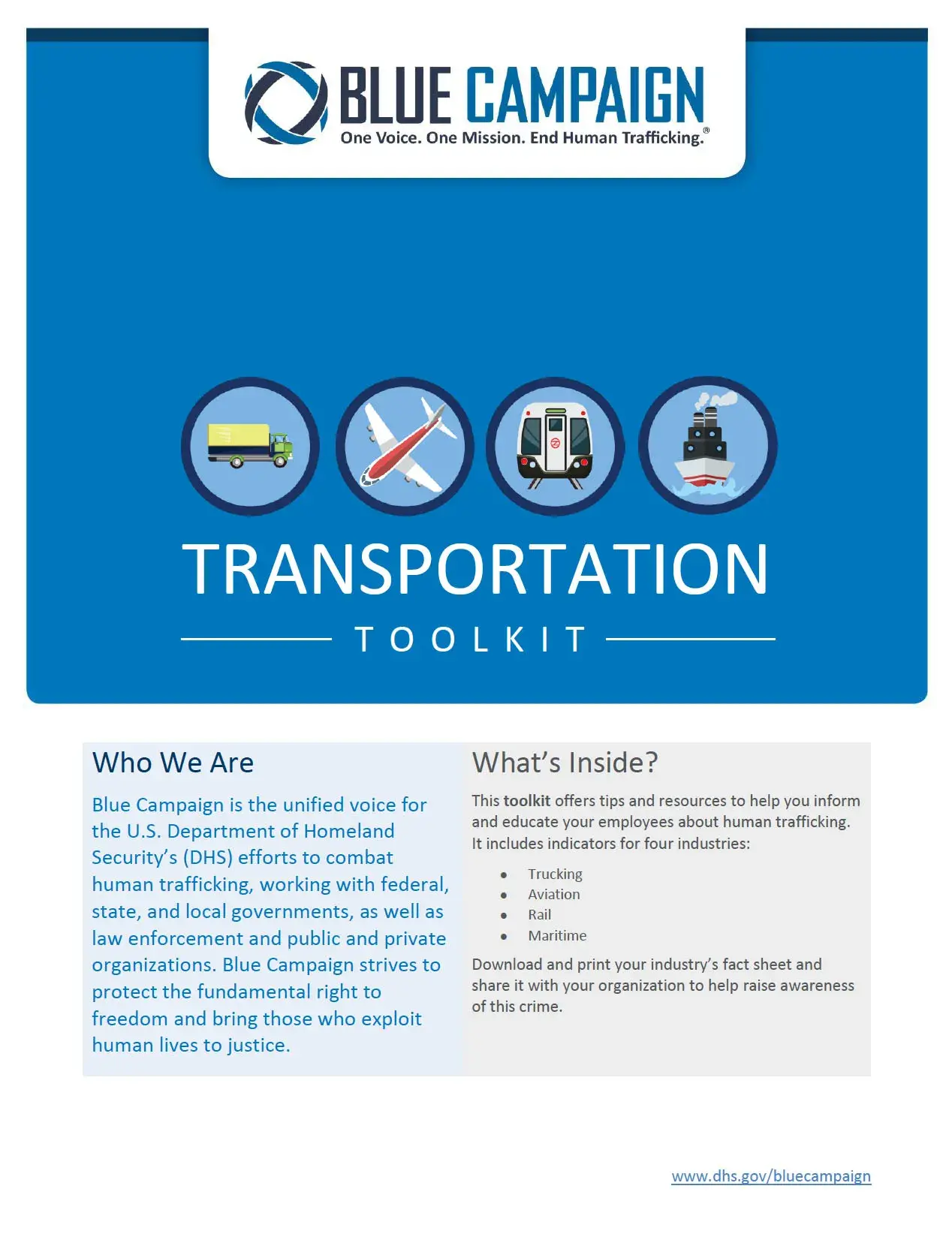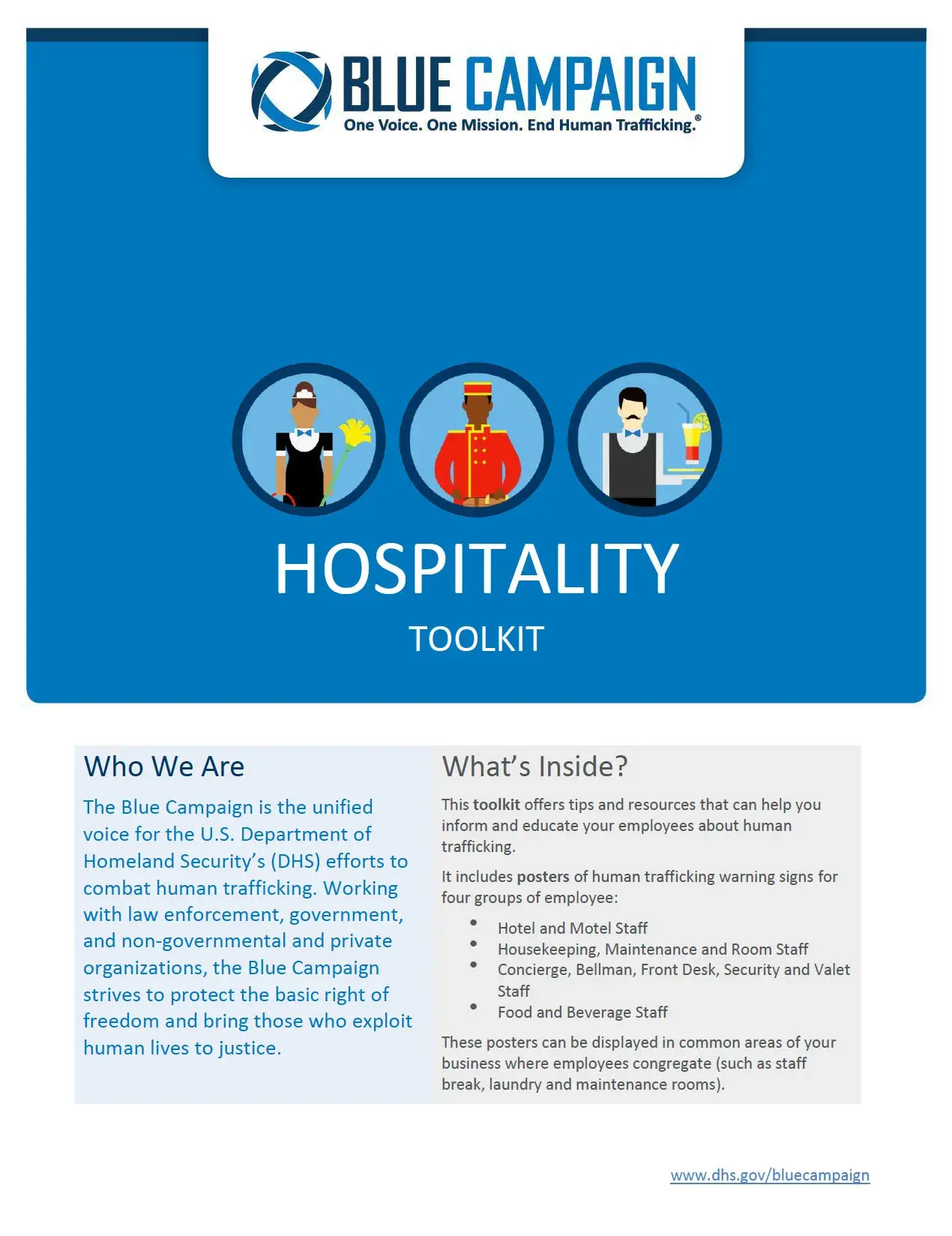There are several industries that are well-positioned to recognize human trafficking due to being located where human trafficking occurs, the anonymity offered by the nature of the service or product, or their 24/7 operations. Below are resources for convenience retail, transportation, and hospitality industries that can be used to help educate frontline employee how to recognize and report human trafficking while on the job.
Convenience Retail Employees: Human Trafficking Awareness Guide
 The Convenience Retail Employees: Human Trafficking Awareness Guide informs front line convenience retail employees about human trafficking, the indicators that may help them recognize a potential victim in a convenience retail setting, and how to report suspected instances of the crime. Convenience retailers can play a significant role in combating human trafficking because of their presence in virtually every community - urban, suburban, and rural - as well as their often 24/7 operations.
The Convenience Retail Employees: Human Trafficking Awareness Guide informs front line convenience retail employees about human trafficking, the indicators that may help them recognize a potential victim in a convenience retail setting, and how to report suspected instances of the crime. Convenience retailers can play a significant role in combating human trafficking because of their presence in virtually every community - urban, suburban, and rural - as well as their often 24/7 operations.
Convenience Retail Employee Training
The Convenience Retail Employees Human Trafficking Awareness Guide has been adapted into a video training
Transportation Industry Toolkit
 The Transportation Industry Toolkit offers tips and resources for the transportation industry to help inform and educate its employees about human trafficking. It includes indicators for four industries: Trucking, Aviation, Rail, and Maritime. Traffickers use trains, buses, planes, and ships to transport victims, hiding them in plain sight. Transportation industry employees are uniquely positioned as the eyes and ears on the highways, public transportation systems, and in the air.
The Transportation Industry Toolkit offers tips and resources for the transportation industry to help inform and educate its employees about human trafficking. It includes indicators for four industries: Trucking, Aviation, Rail, and Maritime. Traffickers use trains, buses, planes, and ships to transport victims, hiding them in plain sight. Transportation industry employees are uniquely positioned as the eyes and ears on the highways, public transportation systems, and in the air.
Hospitality Industry Toolkit
 The Hospitality Industry Toolkit offers tips and resources that can help educate employees about recognizing and responding to human trafficking. It includes posters of human trafficking warning signs for several groups of employees: hotel and motel staff, housekeeping, maintenance and room staff, concierge, bellman, front desk, security and valet staff, and food and beverage staff. This toolkit is available in English and Spanish. Traffickers often take advantage of the privacy and anonymity offered by the hospitality industry. They can operate discretely because staff and guests may not know the signs of human trafficking. Hotels and motels are also oftentimes locations where traffickers force sex trafficking victims to provide commercial sex to paying customers.
The Hospitality Industry Toolkit offers tips and resources that can help educate employees about recognizing and responding to human trafficking. It includes posters of human trafficking warning signs for several groups of employees: hotel and motel staff, housekeeping, maintenance and room staff, concierge, bellman, front desk, security and valet staff, and food and beverage staff. This toolkit is available in English and Spanish. Traffickers often take advantage of the privacy and anonymity offered by the hospitality industry. They can operate discretely because staff and guests may not know the signs of human trafficking. Hotels and motels are also oftentimes locations where traffickers force sex trafficking victims to provide commercial sex to paying customers.


